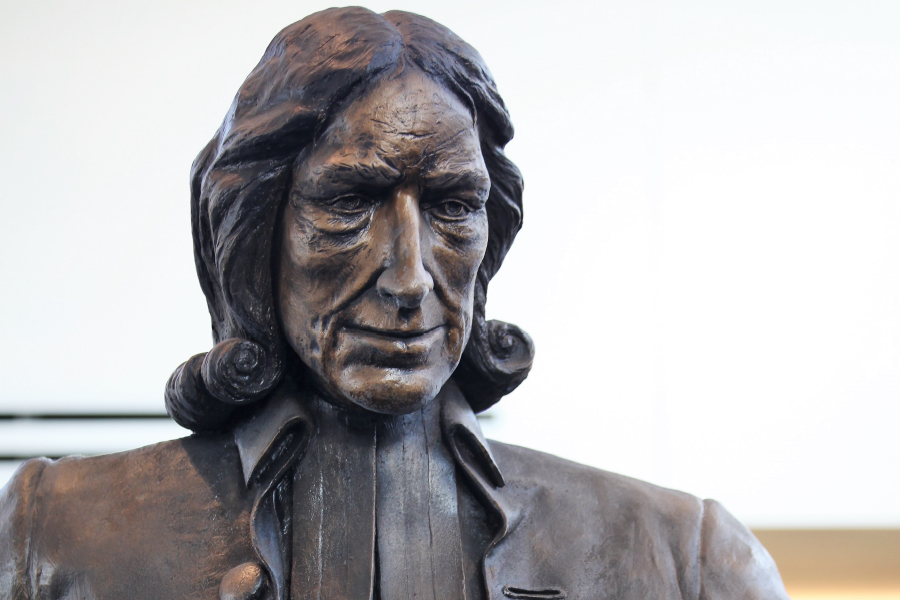Talking Like Wesley

I have fond childhood memories of listening to my aunts and uncles go round and round over pertinent issues at the dinner table. An uncle would boldly proclaim, at full volume, that if he were in office, he would know what to do. I remember an aunt, emphatically declaring to her sister that she herself knew the only way to properly raise a child. Also, I have memories of heated arguments suddenly breaking down into belly laughs around the table.
As a child, it was easy to believe the world was not as complicated as it seemed, if only everyone would come together at the table and hash it out. This was, of course, a childish notion that just wouldn't work in the world today, much less in the church. Or could it?
As I look across the Church of the Nazarene today, I can't help but wonder where the dinner table has gone.
We have mastered the concept of 'group think.' We find those who agree with us and simply stick to our circles. This is a convenient system because it means we get to hold on to what we know and proudly proclaim that we have 'the truth,' and that it should not be questioned.
Truth is a funny thing though. No matter how many times you question it, it will still be the truth. No matter how many times I tell my dog he is a cat, that silly dog just won't change. He'll still be a dog, and he will still bark relentlessly into the night sky.
Truth is true despite the argument. If this is so, then we, as the church, can boldly proclaim our truth to all questioners from all generations and allow it to be challenged relentlessly.
Yet, there are two sides to this coin. What if our truth is actually false? Is the church okay with this risk? Perhaps the better question is, if what we are proclaiming is false, then should we really be proclaiming it? How will we ever be certain of truth unless we allow the dialogue to take place?
One of the greatest fears over an open dialogue is the fear of change. Not just small changes, but key changes to how we operate, what we believe, teach, and confess as the church. Yet, if it is historically part of the nature of a people to change, then would they not betray their base convictions and identity by refusing to consider change?
Early in the history of the Methodist Church, John Wesley brought to convention the essential question, 'Has our message changed?' The answer was a resounding 'No.' Even so, where they had once felt that all their efforts should be directed solely toward the conversion of sinners, they now recognized that more time was rightly being dedicated to discipleship than ever before. By this, the Methodists came to recognize that they were no longer a people simply concerned with the moment of justification (their original message), but rather a people who saw salvation as a life event beyond a moment in history.
This revolutionized the movement. Some would suggest that this was just a change to the belief and actions of the Methodists, and not a genuine change in their identity. To those I would pose this question: What exactly defines identity if not belief and action?
When we surrender the art of Christian dialogue with one another we are not protecting our identity: we are embalming it.
Wesley sought to discuss and debate with those around him in order to best understand when change was and was not necessary and beneficial. Change is not a threat to the historical Nazarene. Change is a part of who we are.
Occasionally, I hear of people who are 'out to destroy the Church of the Nazarene,' or of people who would 'dismantle the whole thing if we don't fight them tooth and nail.' While it's entertaining to talk about such people and imagine that we are Christian sailors defending a theological life boat from unorthodox pirates, it just doesn't seem to be true.
Rarely does anyone come to the table of dialogue intending to do harm to the church. Even the great heretics were people who genuinely thought they were leading the church in the right direction, or they wouldn't have risked (and often accepted) excommunication, and even death.
When Wesley was a younger man he dialogued poorly. If he disagreed with a sister or brother and they would not be swayed, there was bad blood between them. We can see in his writings that as he aged he came to stop hating those who disagreed with him. If we excommunicate everyone we disagree with, we will have lots of fun in our circles. We will talk about all of the things we like and hate and everyone will agree with us. 'Group think' is exciting and feels good. However, it can be extremely destructive.
Refusing to talk to 'those heretics' or 'that sinner' across the table feels good in the moment, but our children will suffer the consequences of a broken church.
If the Nazarene Church truly seeks to be 'Wesleyan,' open dialogue between friends is a must. This talk will not destroy the truth of the gospel. The identity of the Nazarene Church will remain intact.
If God desires change, we will change.
Most importantly, dialogue is a talk among family. Across the table, board room, blog, or phone line, are our brothers and sisters - not evil personified, but those we love the most.
Come, and let's sit at the table.
Travis Lee serves as youth pastor at Rogers, Arkansas, First Church of the Nazarene.
Holiness Today
Please note: All facts, figures, and titles were accurate to the best of our knowledge at the time of original publication but may have since changed.




